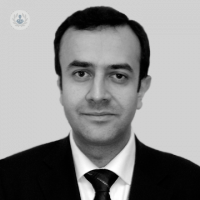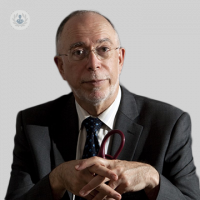What are digestive diseases?
A digestive disease, or disorder, involves something going wrong with one of the organs in the digestive system.
The digestive system is a tube made up of the mouth, oesophagus, stomach, small intestine and large intestine, which leads to the back passage. It also contains organs such as the liver, gallbladder, and pancreas.
Each part of this system has a different purpose, such as breaking down food, absorbing nutrients, or removing toxins or alcohol.
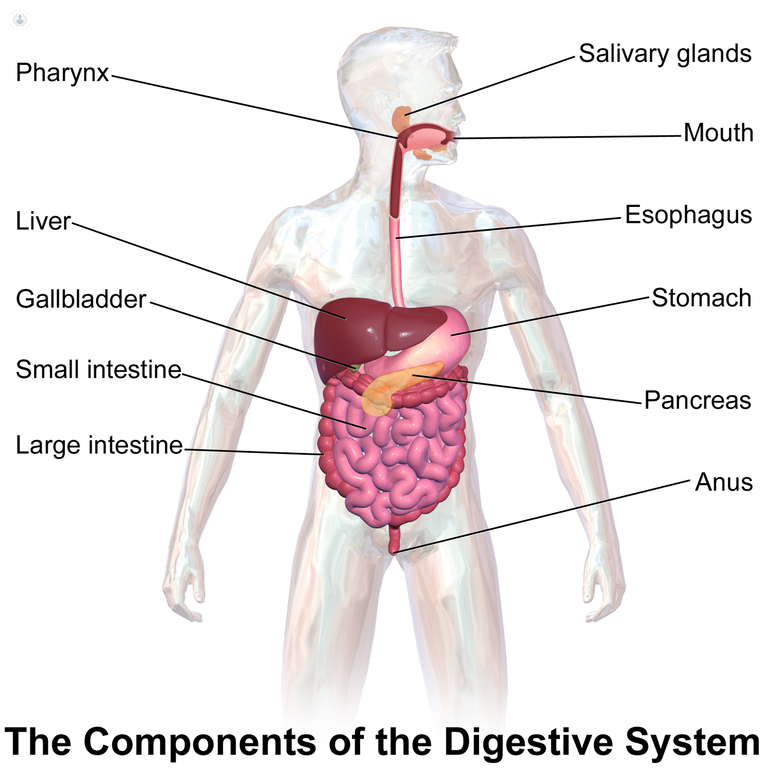
Digestive diseases can include:
- Problems with the oesophagus – including acid reflux, achalasia,
- Problems with the stomach – including gastro paresis, stomach ulcers, and stomach cancer
- Problems with the gallbladder – including gallstones. and acute cholecystitis
- Problems with the pancreas – including pancreatitis and pancreatic cancer
- Problems with the liver – including liver cysts and liver cancer
- Problems with the intestines – including coeliac disease, dysentery, Hirschsprung's disease, irritable bowel syndrome (IBS), and ulcerative colitis, diverticulitis, colon cancer, and polyps
- Problems with the rectum – including, anal fissure, anal fistula, and haemorrhoids
- Problems with the system as a whole – including Crohn’s disease
- Issues generally related to dietary problems – including constipation, indigestion, flatulence, food intolerances, and lactose intolerance.

What are the symptoms of a digestive disease?
Symptoms of a digestive disease can include:
- bloating
- constipation
- diarrhoea
- stomach pain
- weight gain or loss
- heartburn
- incontinence
- nausea or vomiting
What type of specialist treats digestive diseases?
A gastroenterologist is a type of consultant who specialises in digestive diseases. Depending on your condition, however, they may not be able to make a diagnosis on their own, and may refer you to other specialists, such as radiologists, to conduct further tests.
02-03-2014 05-29-2024Digestive diseases
Professor Raj Mookerjee - Gastroenterology
Created on: 02-03-2014
Updated on: 05-29-2024
Edited by: Karolyn Judge
What are digestive diseases?
A digestive disease, or disorder, involves something going wrong with one of the organs in the digestive system.
The digestive system is a tube made up of the mouth, oesophagus, stomach, small intestine and large intestine, which leads to the back passage. It also contains organs such as the liver, gallbladder, and pancreas.
Each part of this system has a different purpose, such as breaking down food, absorbing nutrients, or removing toxins or alcohol.

Digestive diseases can include:
- Problems with the oesophagus – including acid reflux, achalasia,
- Problems with the stomach – including gastro paresis, stomach ulcers, and stomach cancer
- Problems with the gallbladder – including gallstones. and acute cholecystitis
- Problems with the pancreas – including pancreatitis and pancreatic cancer
- Problems with the liver – including liver cysts and liver cancer
- Problems with the intestines – including coeliac disease, dysentery, Hirschsprung's disease, irritable bowel syndrome (IBS), and ulcerative colitis, diverticulitis, colon cancer, and polyps
- Problems with the rectum – including, anal fissure, anal fistula, and haemorrhoids
- Problems with the system as a whole – including Crohn’s disease
- Issues generally related to dietary problems – including constipation, indigestion, flatulence, food intolerances, and lactose intolerance.

What are the symptoms of a digestive disease?
Symptoms of a digestive disease can include:
- bloating
- constipation
- diarrhoea
- stomach pain
- weight gain or loss
- heartburn
- incontinence
- nausea or vomiting
What type of specialist treats digestive diseases?
A gastroenterologist is a type of consultant who specialises in digestive diseases. Depending on your condition, however, they may not be able to make a diagnosis on their own, and may refer you to other specialists, such as radiologists, to conduct further tests.
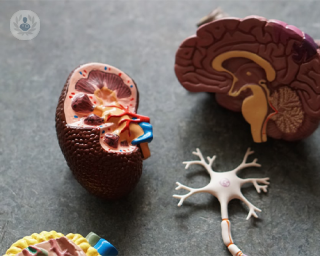

Vagus nerve dysfunction: What is it and what are the main symptoms?
By Professor Owen Epstein
2025-01-28
Vagus nerve dysfunction occurs when the vagus nerve has been damaged due to a past infection or inflammation or when we experience a prolonged period of physical or mental stress. In our latest article, renowned gastroenterologist, Professor Owen Epstein, talks us through vagus nerve dysfunction, offering us a handful of useful home remedies for the condition. See more
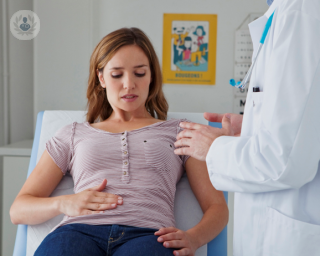

The gut-brain connection: how our emotions play a direct role in the health of our digestive system
By Professor Owen Epstein
2025-01-28
Have certain situations ever made you feel "sick to your stomach"? How often have you felt "butterflies" or decided to just "go with your gut"? These expressions exist for a reason; they reflect an important connection between our brain and gut, highlighting how sensitive our digestive system is to our emotions such as anxiety, stress and even depression. Professor Owen Epstein, a pioneering professor of gastroenterology, explains more. See more


Unlocking digestive wellness
By Mrs Kalpana Devalia
2025-01-28
In her latest online article, Mrs Kalpana Devalia recommends embracing a plant-rich diet to maintain a robust digestive system. See more
Experts in Digestive diseases
-
Professor Stuart Bloom
GastroenterologyExpert in:
- Inflammatory bowel disease (IBD)
- Irritable bowel syndrome (IBS)
- Acid reflux
- Digestive diseases
- Food intolerance
- Bowel cancer screening
-
Professor Owen Epstein
GastroenterologyExpert in:
- Capsule endoscopy
- Cancer screening
- Irritable bowel syndrome (IBS)
- Virtual colonoscopy
- Digestive diseases
- Indigestion (dyspepsia)
-
Dr Vinay Sehgal
GastroenterologyExpert in:
- Acid reflux
- Barrett's oesophagus
- Irritable bowel syndrome (IBS)
- Endoscopy
- Cancer screening
- Digestive diseases
-
Dr Natalia Zarate-Lopez
GastroenterologyExpert in:
- Indigestion (dyspepsia)
- Dysmotility
- Digestive diseases
- Constipation
- Bowel incontinence
- Nutrition
-
Dr Isabelle Martineau
Healthcare professionalsExpert in:
- Thyroid disorders
- Functional medicine
- Stress
- Digestive diseases
- Anti-ageing treatments
- Women's health
- See all

Platinum Medical Centre (HCA)
Platinum Medical Centre (HCA)
15-17 Lodge Road, NW8 7JA
No existe teléfono en el centro.
By using the telephone number provided by TOP DOCTORS, you automatically agree to let us use your phone number for statistical and commercial purposes. For further information, read our Privacy Policy
Top Doctors

The Physicians' Clinic
The Physicians' Clinic
14 Devonshire St, London W1G 7AE
No existe teléfono en el centro.
By using the telephone number provided by TOP DOCTORS, you automatically agree to let us use your phone number for statistical and commercial purposes. For further information, read our Privacy Policy
Top Doctors

The Wellington Hospital - part of HCA Healthcare
The Wellington Hospital - part of HCA Healthcare
Wellington Hospital South Bldg, 8A Wellington Pl, NW8 9LE
No existe teléfono en el centro.
By using the telephone number provided by TOP DOCTORS, you automatically agree to let us use your phone number for statistical and commercial purposes. For further information, read our Privacy Policy
Top Doctors
-
Platinum Medical Centre (HCA)
15-17 Lodge Road, NW8 7JA, Central LondonExpert in:
- Digestive
- Cancer
- Orthopaedic surgery
- Diagnostic Imaging
- Spine
- Physiotherapy
-
The Physicians' Clinic
14 Devonshire St, London W1G 7AE, Central LondonExpert in:
- Cardiology
- Dermatology
- Gastroenterology
- Neurology
- Rheumatology
-
The Wellington Hospital - part of HCA Healthcare
Wellington Hospital South Bldg, 8A Wellington Pl, NW8 9LE, Central LondonExpert in:
- Digestive
- Cardiology
- Orthopaedic surgery
- Orthopaedic spinal surgery
- Intensive care
- Spine
- See all
- Most viewed diseases, medical tests, and treatments
- Respiratory infection
- Menopause support
- Immunotherapy
- Alzheimer's disease
- Cluster headaches
- Tension headache
- Chronic headache
- Visual impairment
- Diabetic retinopathy
- Retina
